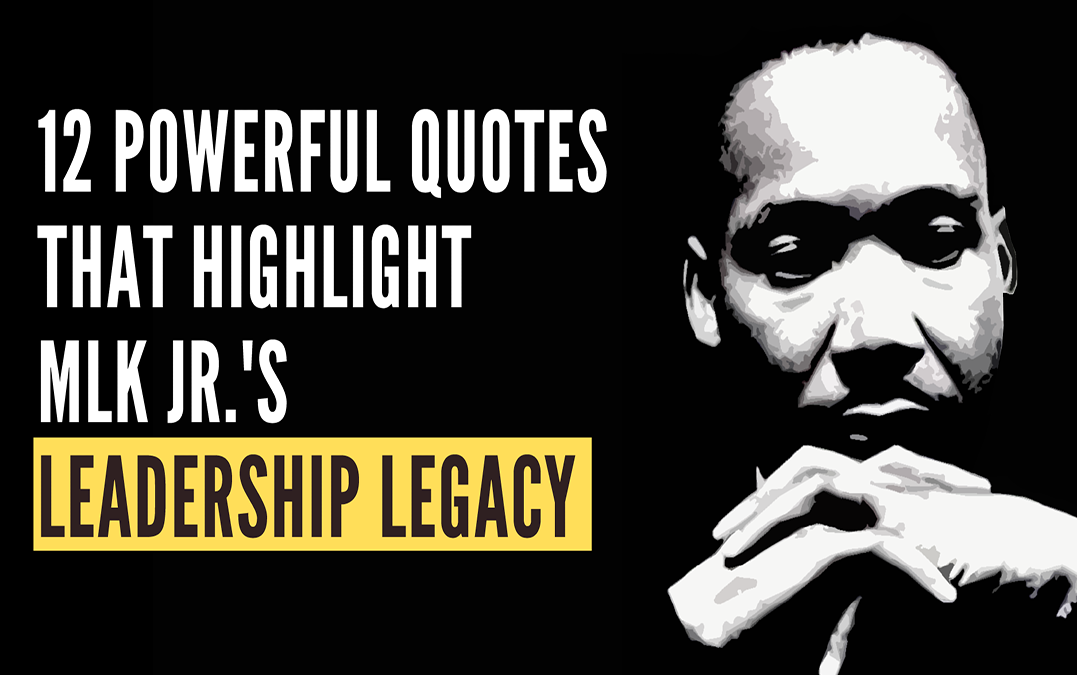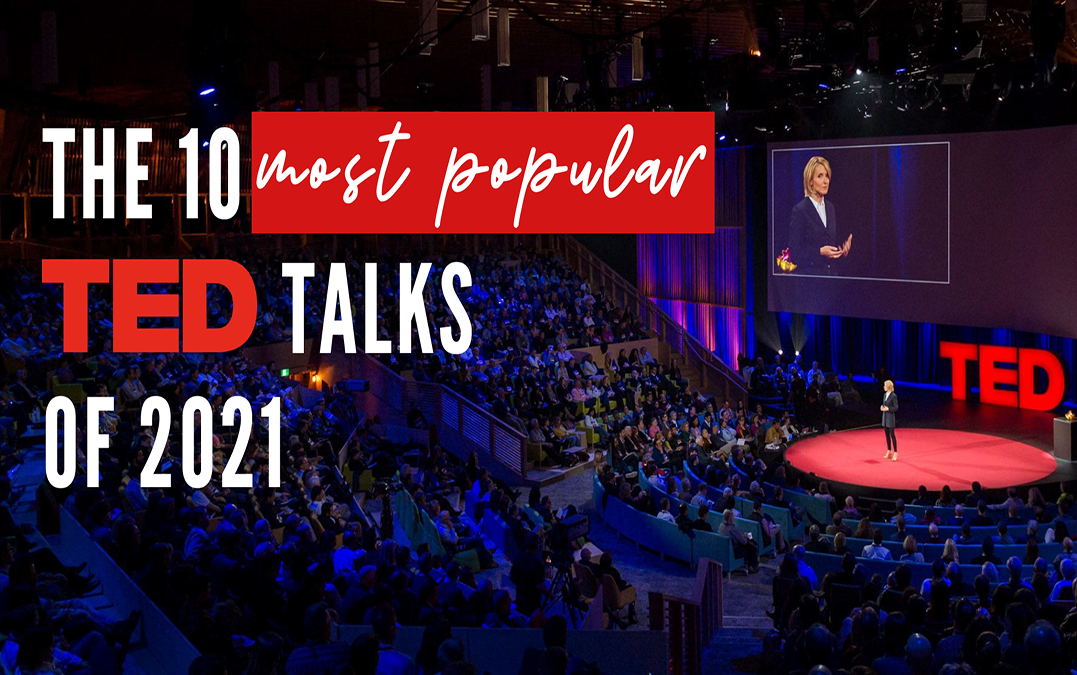
Sticky Solutions
Sticky solutions to your everyday business challenges

Question: I manage an 8-person business development team. We recently completed a team engagement survey that identified our top challenge as not having productive meetings. Since we all started working from home and dealing with the ups and downs of Covid-19, I’ve allowed our meetings to turn into group support sessions. While I think there is value in sharing challenges with each other, this is an area that I want to tackle in 2022. Can you recommend any tips for how to keep our team meetings productive?
(more…)

Leadership
For two years, managers have been waiting for ‘the day’ when everyone goes back to the office. The expectation, back in early 2020, was that once the pandemic had ended, we’d all collectively resume our pre-Covid patterns of office-based work.
During that period of collective pause, managers leaned on the side of giving grace while their direct reports who were able to work from home (WFH) navigated the complexities and uncertainties of pandemic life. “My meeting link isn’t working,” “I’m recovering from my booster shot,” and “It’s not going to be a camera day for me today,” became familiar and forgivable lapses in engagement.
But, with the emergence of Covid-19 variants like Omicron, managers have abandoned the idea that there ever will be a day when we’re all permanently back at our office desks. That also means that critical performance feedback cannot be postponed and must be given remotely.
Giving critical feedback is one of the most challenging responsibilities of a manager. If you’re a manager whose team is working remotely, here are some key steps to update your approach to giving critical feedback in the WFH world:
1. Lead with curiosity. Ask open-ended questions to get your employee’s perception of their performance before expressing yours.
2. Point out their value. Show specific appreciation before laying out criticism. They’ll be more likely to be receptive to your feedback if they trust that you value them.
3. Partner for performance. State your positive intentions. Something as simple as “I’m in your corner” can go a long way.
4. Clarify and contrast. “I’m saying X, but I’m not saying Y.”
5. Close with their summary. Ask your employee to state their key takeaways from the conversation.
We’re all under long haul stress from the pandemic. Some of us are dealing with it better than others. Take care to deliver your feedback with clarity and sensitivity to help your team member focus on the reality of how their performance needs to improve, even in a remote environment.
Question: What are some ways you can update your approach to giving feedback in a WFH world?
Driven by the premise that excellence is the result of aligning people, purpose and performance, Center for Executive Excellence facilitates training in leading self, leading teams and leading organizations. To learn more, subscribe to receive CEE News!

Leadership
This month, Martin Luther King, Jr. would have turned 93. While it is customary to look to our elders for sage advice, King knew that he was walking a path of imminent danger, but that his words could not be silenced by a bullet. Before his assassination at age 39, King reached deep within himself to find messages that would ring as clear and true today as they did during the turbulent times in which he was called to lead.
Here are 12 quotes from 1960 (at age 31) to 1969 (the night before he was killed eight years later) that are part of Dr. King’s enduring legacy.
1. In the final analysis, the question will be, “What did you do for others?”
(Three Dimensions of a Complete Life, Sermon delivered in Pasadena, CA, February 28, 1960.)
2. I am convinced that men hate each other because they fear each other. They fear each other because they don’t know each other, and they don’t know each other because they don’t communicate with each other, and they don’t communicate with each other because they are separated from each other.
(Lecture given at Cornell College, Mount Vernon, Iowa, October 15, 1962.)
3. History has proven that social systems have a great last-minute breathing power, and the guardians of the status quo are always on hand with their oxygen tents to keep the old order alive.
(Ibid.)
4. We often end up with the high blood pressure of creeds and an anemia of deeds.
(Ibid.)
5. There comes a time when the cup of endurance runs over and men are no longer willing to be plunged into an abyss of injustice where they experience the bleakness of corroding despair.
(Letter from a Birmingham Jail, written while in solitary confinement after being arrested on charges of violating Alabama’s law against mass public demonstrations, April 16, 1963.)
6. Even though we face the difficulties of today and tomorrow, I still have a dream. It is a dream deeply rooted in the American dream.
(I Have A Dream, Address given at the March on Washington, August 28, 1963.)
7. I refuse to accept despair as the final response to the ambiguities of history.
(Nobel Peace Prize Acceptance Speech in Oslo, Norway, December 11, 1964.)
8. We must learn to live together as brothers — or perish together as fools.
(Remaining Awake Through a Great Revolution, Commencement Address for Oberlin College, June 1965.)
9. A genuine leader is not a searcher for consensus, but a molder of consensus.
(Domestic Impact of the War, Speech before National Labor Leadership Assembly for Peace, November 1967.)
10. I have decided to stick to love…Hate is too great a burden to bear.
(Where Do We Go From Here?, Address delivered at the 11th Annual SCLC Convention, August 1967.)
11. Everybody can be great because everybody can serve.
(The Drum Major Instinct, Sermon given at Ebenezer Baptist Church, February 4, 1968, two months before his assassination.)
12. Either we go up together, or we go down together.
(I’ve Been to the Mountaintop, Speech given at the Mason Temple, Memphis, TN, April 3, 1968, the night before his death.)
The last words of King’s speech at the Mason Temple were borrowed from The Battle Hymn of the Republic, “Mine eyes have seen the glory of the coming of the Lord.” At his funeral, his wife, Coretta, completed the stanza that King had been too overcome by emotion to add, “His truth is marching on.”
Question: Which of these quotes from Martin Luther King, Jr. do you find most compelling today?
Driven by the premise that excellence is the result of aligning people, purpose and performance, Center for Executive Excellence facilitates training in leading self, leading teams and leading organizations. To learn more, subscribe to receive CEE News!

Leadership, Mindfulness
Want to get out of that “meh” feeling and start finding your flow? Interested in learning more about how mRNA works? Looking for ways to have constructive conversations and deepen your relationships? From speeches on education to the practice of mindfulness, TED Talks are the perfect source of inspiration and taking tiny steps toward showing up as your best self.
Here are the talks that most intrigued and inspired in 2021, including talks by Adam Grant and 7-year old Molly Wright.
10. The Counterintuitive Way to be More Persuasive by Niro Sivanthan
 About the speaker: Sivanathan is an Associate Professor of Organizational Behavior at the London Business School. His award-winning research has garnered international press coverage and he is the recipient of numerous teaching awards, including being selected as one of the World’s 40 Best B-School Professors under 40 by Poets and Quants in 2016.
About the speaker: Sivanathan is an Associate Professor of Organizational Behavior at the London Business School. His award-winning research has garnered international press coverage and he is the recipient of numerous teaching awards, including being selected as one of the World’s 40 Best B-School Professors under 40 by Poets and Quants in 2016.
What this talk is about: How our judgments, decisions and behaviors are regulated by the psychological experience of being cloaked with status and power.
9. The Cure for Burnout (Hint: It Isn’t Self-Care) by Emily Nagoski and Amelia Nagoski
 About the speakers: Emily Nagoski is the award-winning author of the New York Times bestselling Come As You Are and The Come As You Are Workbook, and coauthor, with her sister, Amelia, of the New York Times bestseller Burnout: The Secret to Unlocking the Stress Cycle.
About the speakers: Emily Nagoski is the award-winning author of the New York Times bestselling Come As You Are and The Come As You Are Workbook, and coauthor, with her sister, Amelia, of the New York Times bestseller Burnout: The Secret to Unlocking the Stress Cycle.
What this talk is about: In an introspective and deeply relatable conversation, the authors detail three telltale signs that stress is getting the best of you — and share actionable ways to feel safe in your own body when you’re burning out.
8. Meet the Scientist Couple Driving mRNA Vaccine Revolution by Uğur Şahin and Özlem Türeci
 About the speakers: The German couple and founders of BioNTech teamed up with Pfizer on a vaccine that was found to be more than 90 percent effective.
About the speakers: The German couple and founders of BioNTech teamed up with Pfizer on a vaccine that was found to be more than 90 percent effective.
What this talk is about: In this illuminating conversation, the immunologists share the fascinating story of how their decades of mRNA research powered the Pfizer-BioNTech vaccine — and forecast what this breakthrough science could mean for the future of vaccines and other immunotherapy treatments.
7. Using Your Voice is a Political Choice by Amanda Gorman
 About the speaker: Amanda Gorman is the first youth poet laureate of the United States. She is best known for her performance of The Hill We Climb during the 2021 presidential inauguration.
About the speaker: Amanda Gorman is the first youth poet laureate of the United States. She is best known for her performance of The Hill We Climb during the 2021 presidential inauguration.
What this talk is about: In this fierce talk and performance, Gorman explains why poetry is inherently political, pays homage to her honorary ancestors and stresses the value of speaking out despite your fears.
6. How Your Memory Works – And Why Forgetting is Totally Okay by Lisa Genova
 About the speaker: Lisa Genova is a neuroscientist and novelist whose fiction beckons us into the lives of people with neurological disease, making their worlds real and relatable.
About the speaker: Lisa Genova is a neuroscientist and novelist whose fiction beckons us into the lives of people with neurological disease, making their worlds real and relatable.
What this talk is about: Genova wields her ability to tell a story and her knowledge of the human brain to discuss medical conditions like Alzheimer’s in warmly human terms. She explores how we remember, why we forget and what we can do to improve and protect our memories.
5. The 1-Minute Secret to Forming a New Habit by Christine Carter
 About the speaker: As a sociologist, Christine Carter, PhD, inspires large-scale, systemic change in our most common and influential social structures: organizations, families, and schools.
About the speaker: As a sociologist, Christine Carter, PhD, inspires large-scale, systemic change in our most common and influential social structures: organizations, families, and schools.
What this talk is about: You know how resolutions often go: you set a goal and start strong … then the motivation runs out and feelings of frustration and shame creep in. The struggle is real — but what if it doesn’t have to be? Carter shares a simple step to shift your mindset and keep you on track to achieving your grandest ambitions.
4. The Science Behind How Parents Affect Child Development by Yuko Munakata

About the speaker: Yuko Munakata is a professor in the Department of Psychology and Center for Mind and Brain at the University of California, Davis.
What this talk is about: Parents, take a deep breath: how your kids turn out isn’t fully on you. Of course, parenting plays an important role in shaping who children become, but psychologist Yuko Munakata offers an alternative, research-backed reality that highlights how it’s just one of many factors that influence the chaotic complexity of childhood development.
3. How to Have Constructive Conversations by Julia Dhar
 About the speaker: Julia Dhar is a partner at Boston Consulting Group, where she leads the firm’s behavioral insights and behavioral economics initiatives. She helps C-suite executives and frontline managers apply those same tools of communication and negotiation at the moments that matter.
About the speaker: Julia Dhar is a partner at Boston Consulting Group, where she leads the firm’s behavioral insights and behavioral economics initiatives. She helps C-suite executives and frontline managers apply those same tools of communication and negotiation at the moments that matter.
What this talk is about: In this practical talk, Dhar shares three essential features of productive disagreements grounded in curiosity and purpose. The end result? Constructive conversations that sharpen your argument and strengthen your relationships.
2. How to Stop Languishing and Start Finding Flow by Adam Grant
 About the speaker: As an organizational psychologist, Adam Grant rethinks how people lead, work and live. Among his guiding principles is to argue like he’s right and listen like he’s wrong.
About the speaker: As an organizational psychologist, Adam Grant rethinks how people lead, work and live. Among his guiding principles is to argue like he’s right and listen like he’s wrong.
What this talk is about: Have you found yourself staying up late, joylessly bingeing TV shows and doomscrolling through the news, or simply navigating your day uninspired and aimless? Chances are you’re languishing — a psychic malaise that has become all too common after many months of the pandemic. He breaks down the key indicators of languishing and presents three ways to escape that “meh” feeling and start finding your flow.
1. How Every Child Can Thrive by Five by Molly Wright
 About the speaker: Molly Wright, a student from Queensland, Australia, is a passionate advocate for early childhood development. At just seven years old, she’s one of the youngest people ever to give a TED Talk.
About the speaker: Molly Wright, a student from Queensland, Australia, is a passionate advocate for early childhood development. At just seven years old, she’s one of the youngest people ever to give a TED Talk.
What this talk is about: Breaking down the research-backed ways parents and caregivers can support children’s healthy brain development, Wright highlights the benefits of play on lifelong learning, behavior and well-being, sharing effective strategies to help all kids thrive by the age of five.
Question: Which of these remarkable TED Talks did you find most inspiring?
Driven by the premise that excellence is the result of aligning people, purpose and performance, Center for Executive Excellence facilitates training in leading self, leading teams and leading organizations. To learn more, subscribe to receive CEE News!

Leadership, Mindfulness
Chances are, January has you thinking about how to be your best self this year. Doing so likely means taking stock of the rote habits in your life that are causing a drag on your energy. Simple enough in theory. Yet, simple is rarely simplistic.
19th century philosopher William James opined that all of our lives are but a mass of habits. Research published in a 2006 study found that about 40% of our daily action is habitual, which is still a good chunk of time spent in mindless behavior. And that was more than 15 years ago. How much more distracted, distant, and drained are we today by our digital lives and full-frontal political polarization?
If habits and distractions require little conscious thought, it may be time to do some self-evaluation. What is not working in your life? Where is there room to do better? How are you unconsciously sabotaging your own success?
Is it possible that you don’t have a definition of success that is truly meaningful? Does success mean dropping weight or having more Instagram-worthy moments? Or, does success mean showing up for people and committing yourself to social connection?
Maybe it means showing up for yourself first. Maybe you do that by switching one bad habit for one good habit. Not because your waistline is growing, but because, in order to show up as your best self this year, you need to get real about the cumulative effects of unhealthy habits.
There are plenty of resources available with tips and tools for how master the habits in your everyday life. But, before you pick up a title like Gretchin Rubin’s Better Than Before: Mastering the Habits of Our Everyday Lives, try Rubin’s The Happiness Project: Or Why I Spent a Year Trying to Sing in the Morning, Clean My Closets, Fight Right, Read Aristotle, and Generally Have More Fun. If you want to explore your why on a more existential level, try this TED interview with David Brooks about his book, The Second Mountain: The Quest for a Moral Life.
There’s a reason why you made it to January 2022. Whether or not you’re into making New Year’s resolutions, don’t let bad habits and distractions keep you from showing up as your best self.
Question: What is one good habit that you could switch for one that isn’t serving you?
Driven by the premise that excellence is the result of aligning people, purpose and performance, Center for Executive Excellence facilitates training in leading self, leading teams and leading organizations. To learn more, subscribe to receive CEE News!















